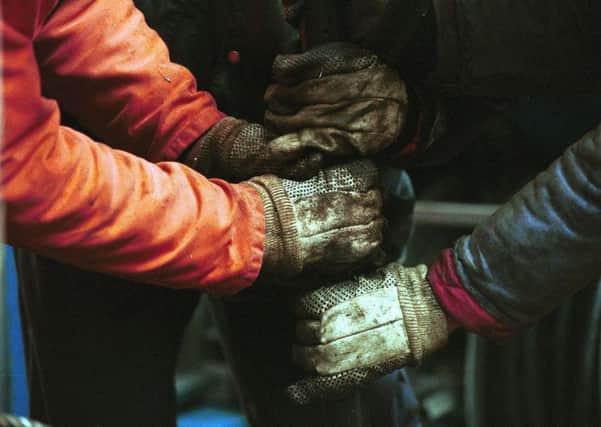Job cuts help North Sea operators target £2bn cuts


A major study published today by Oil & Gas UK has found that the industry remains under huge pressure from falling fuel prices, a rising cost base and production decline.
The trade organisation said “difficult decisions” have been taken across the sector, with further job cuts “likely” from the current 375,000 headcount. There has been a reduction of about 66,000 to date from the start of last year, covering the whole UK sector, with the figure exceeding recent estimates. It also includes jobs affected both directly and indirectly by the industry.
Advertisement
Hide AdAdvertisement
Hide AdAdditionally, the report has described the UK sector as in need of transformation to become “more resilient and competitive” and said further tax breaks are required to accelerate its recovery.
Nonetheless, its outlook for the offshore oil and gas industry was positive, suggesting it has “turned a corner” with “concerted action” to be more efficient. It also expects the unit cost of operating UK oil and gas assets to improve, backed by the first annual production increase for 15 years.
Oil & Gas UK expects the average operating cost per barrel oil equivalent (boe) for across all fields to reduce from an estimated £17.80 last year to £17 this year and by a further £2-£3 per boe to about £15 boe by end 2016.
Looking at the progress, Mike Tholen, Oil & Gas UK’s economic director, said: “Strong investment in asset integrity over the last four years, coupled with measures being taken to improve the efficiency of assets offshore, have resulted in better output from many existing fields and we expect the rate of decline in production from those fields to slow significantly over the next two years.
“Taken together with the start-up of the sizeable Golden Eagle field, the government’s provisional data show that production in the first half of 2015 was 3 per cent higher than the same period in 2014, an indication that over this year, we are likely to see annual production increase.”
Tholen did note that the improvement will be offset in part by £1.1bn of operating costs relating to new fields, but said the new developments “are vital for the future of our industry, in terms of both oil and gas production as well as the commercial opportunities they bring for the supply chain”.
Deirdre Michie, Oil & Gas UK’s chief executive, examined the challenges “in a world of sustained lower oil prices,” and noted: “Last year, more was spent than was earned from production, a situation which has been exacerbated by the continued fall in commodity prices.
“This is not sustainable and investors are hard-pressed to commit investment here because of cash constraints. Exploration for new resources has fallen to its lowest level since the 1970s and with so few new projects gaining approval, capital investment is expected to drop from £14.8bn (2014) by £2bn-£4bn in each of the next three years.”
Advertisement
Hide AdAdvertisement
Hide AdShe added: “Maximising the recovery of our oil and gas resource will strengthen the country’s energy security, boost tax revenues, exports and the balance of payments as well as sustain high value activity and jobs in our world-class supply chain.”
The report comes after Oil & Gas UK last week launched its Efficiency Task Force to help the sector secure a positive and sustainable future.